USC Village Target locks up more merchandise
Many products, including toothpaste, now require an employee key to access.
Many products, including toothpaste, now require an employee key to access.

Shoppers at the USC Village Target noticed Wednesday that the store increased its use of locked glass casing to prevent customers from obtaining certain merchandise without employee aid. While previously, only medicines like Flonase and some razors were locked behind casing, products like toothpaste, shampoo and CVS-brand medicines now require an employee key to access.
The news comes as retailers face a whopping $112 billion in retail losses due to shoplifting last year, according to a survey released by the National Retail Federation on Tuesday. Many retailers are spending more on loss prevention, use of third-party security personnel and employee workplace violence training.
Los Angeles was the metro area most affected by organized retail crime, followed by San Francisco and Oakland. Target announced Tuesday it plans to close more than nine locations in major cities due to the increase in thefts and violence in stores, including three in the San Francisco Bay Area.
Shoppers like Rocky Fox, a USC alum who graduated in 2023 with a bachelor’s degree in classical trombone performance, found it odd that some of these products are now less accessible to consumers.
“I thought this lot of stuff was still over-the-counter,” Fox said. “I’m not quite sure why it’s locked up. Also, deodorant’s locked up and I don’t really get that … I just don’t understand.”
Fox said his shopping experience on Wednesday wasn’t exceedingly disturbed, but he could see how the change might result in shopping delays in the future.
“I can definitely see it slowing down traffic and making wait times longer, because if you have more people just waiting to buy regular things that you need every day, like razors or deodorant, it’ll take longer for people to go and get those items than it used to,” he said.
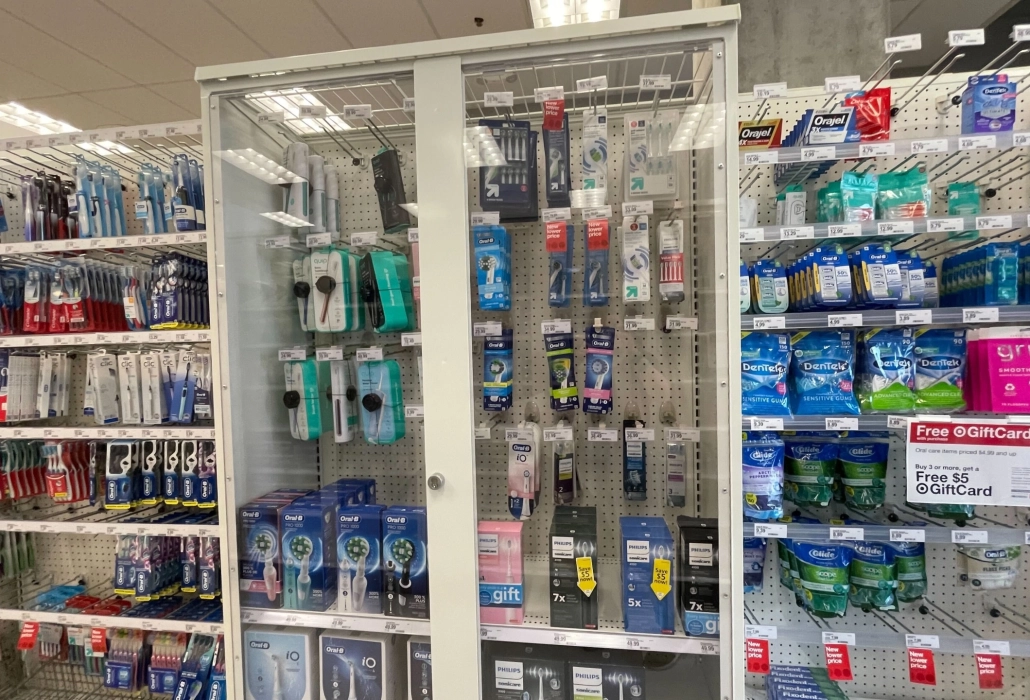
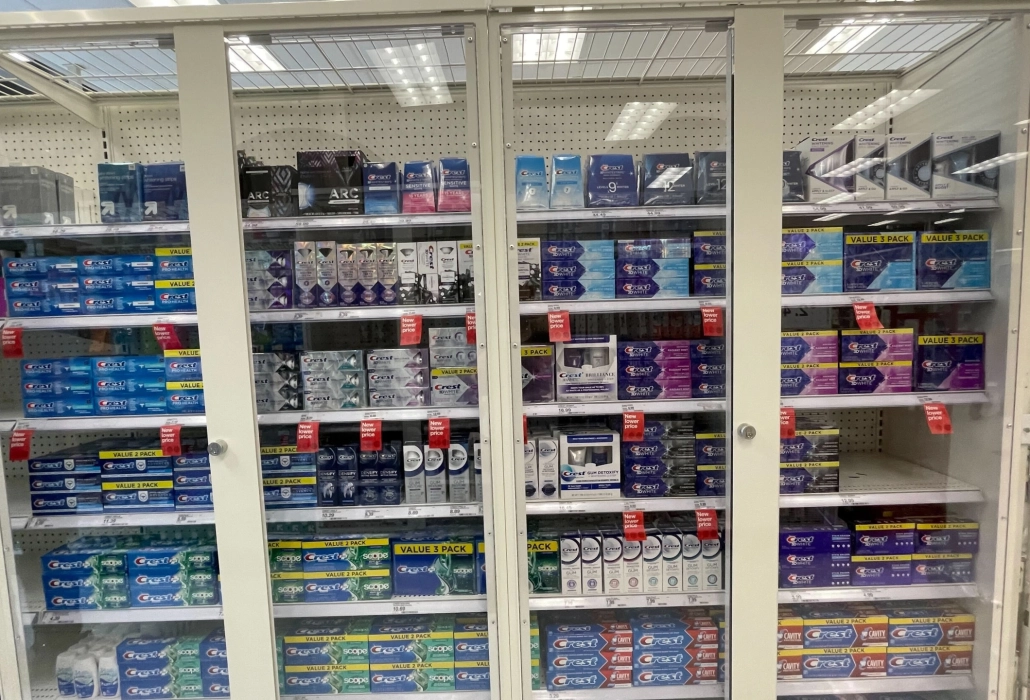
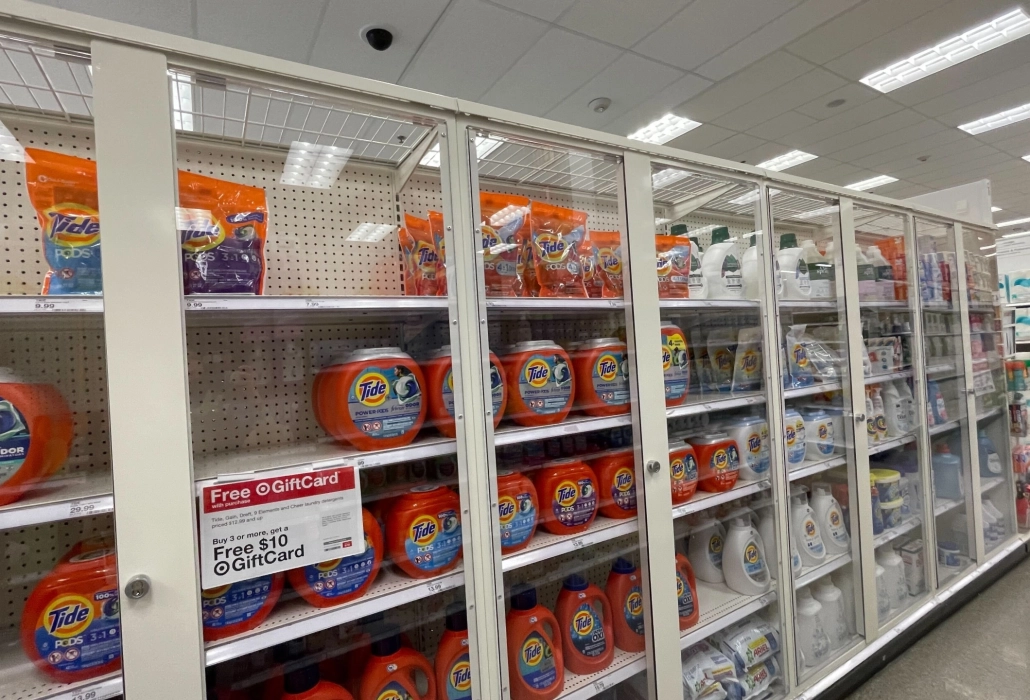
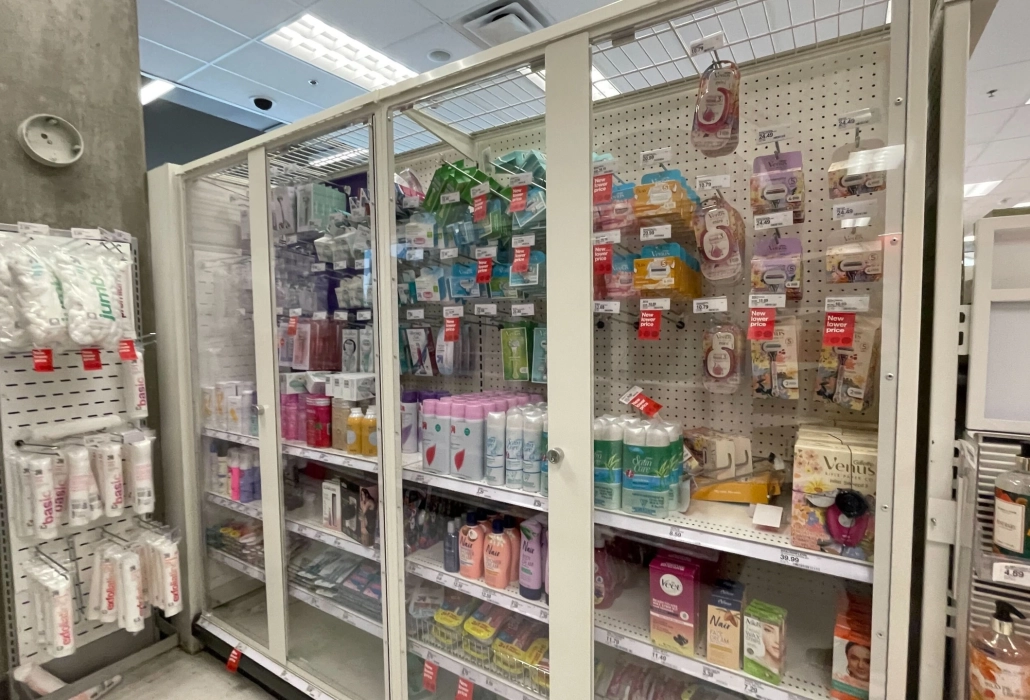
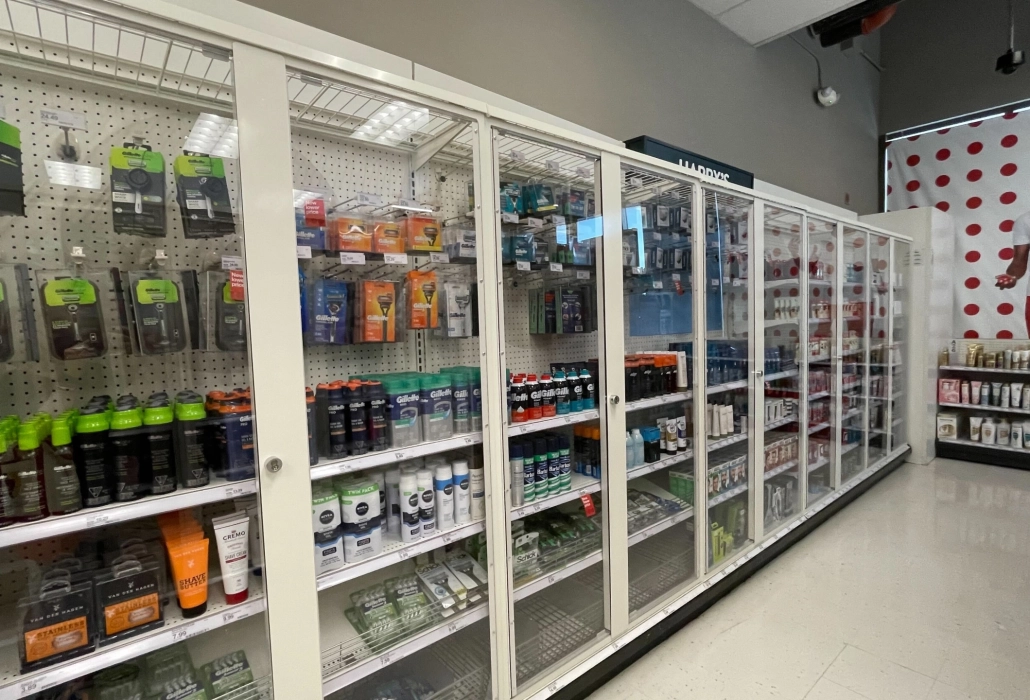
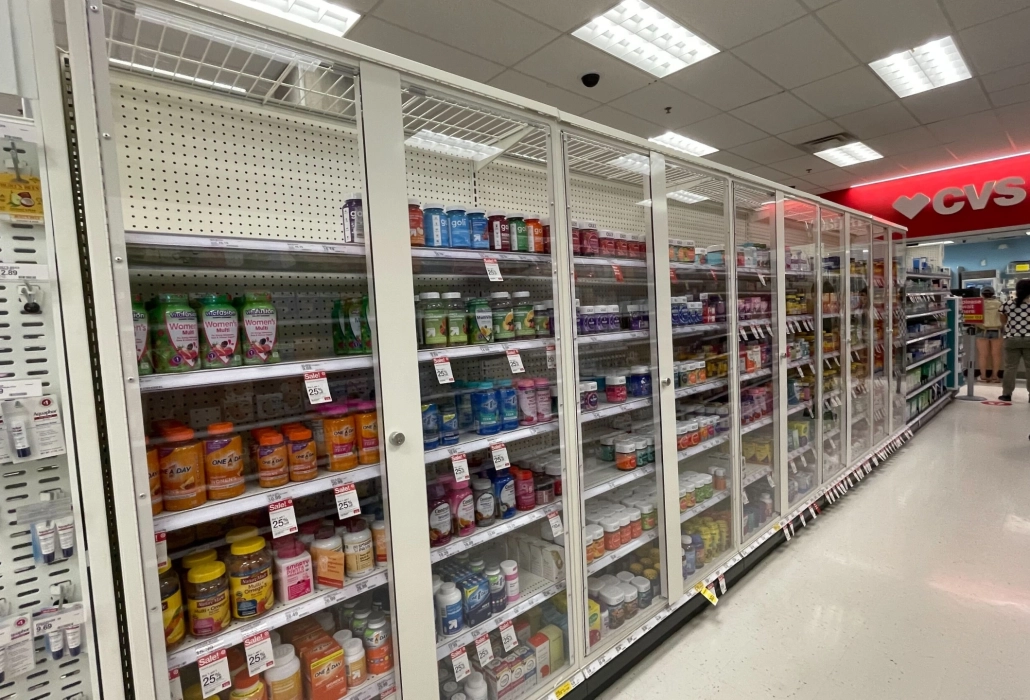
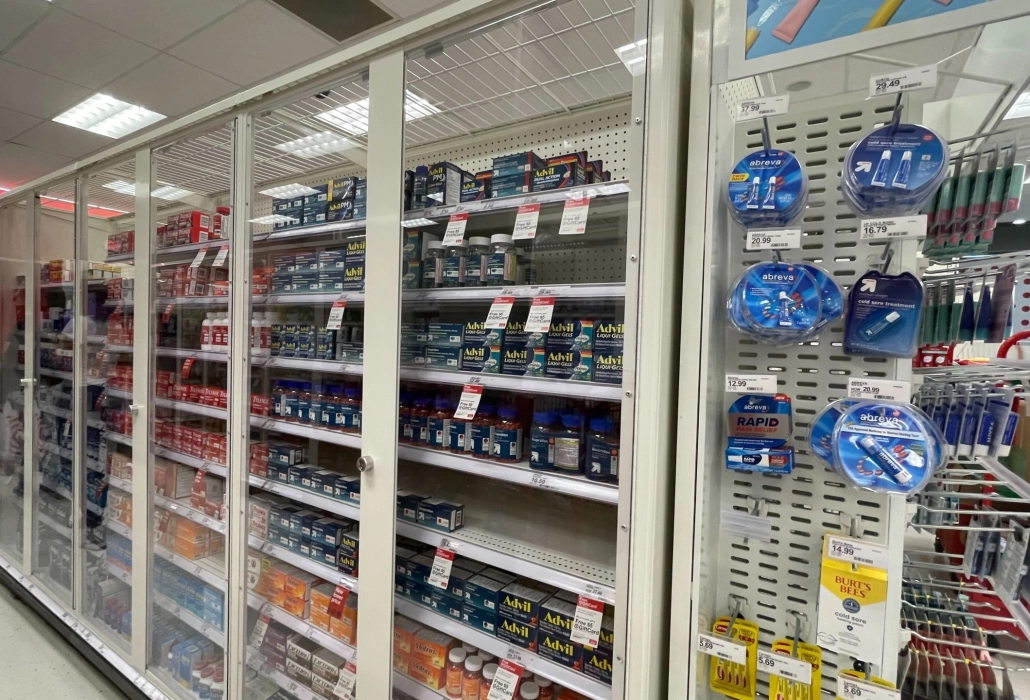
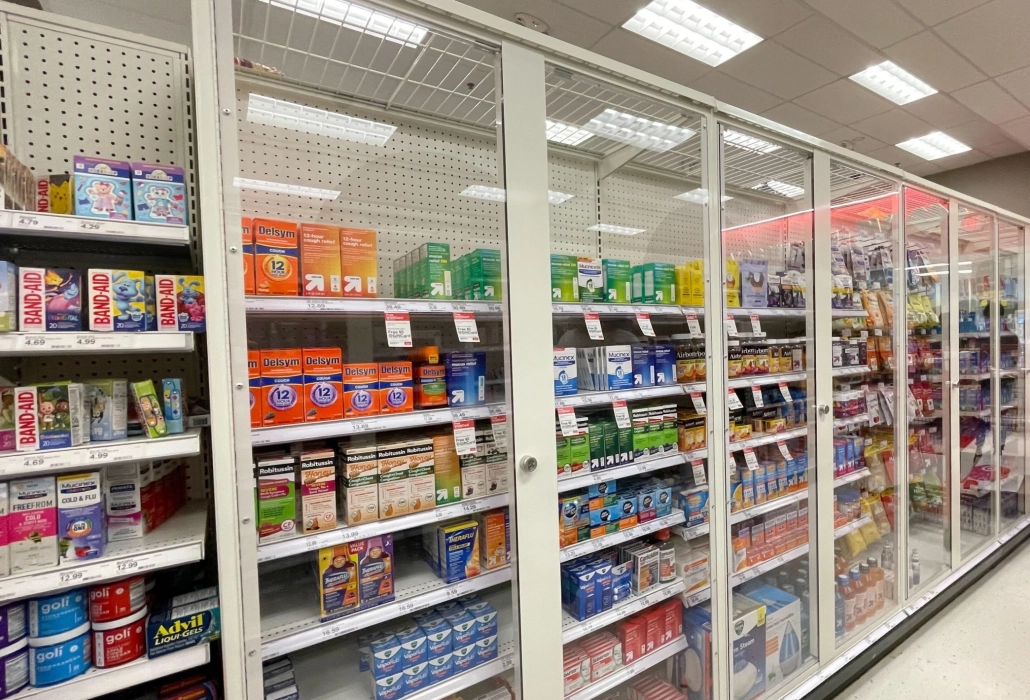
Ethan Schneider, a freshman majoring in industrial and systems engineering, noticed last week that a face care product he used to buy is now behind a locked case. Schneider opted to buy a different product. Like Fox, Schneider said the locked cases have the potential to slow down business.
“It definitely makes it inconvenient for students if they’re just trying to get their products, and I’m not sure if that outweighs the benefits,” Schneider said.
Schneider is aware the locked cases are part of a trend in securing merchandise because of increased theft, but he doesn’t think the actions Target have taken are justifiable, since people who are determined to steal will probably continue to do so.
“The reason they’re doing it might be because homeless people want to take hygiene products, just so they can get clean,” Schneider said. “If that’s actually the reason, it’s pretty immoral.”
Jason Hoang, a sophomore majoring in pharmacology and drug development, did not notice the glass cases while shopping Wednesday and said he wasn’t sure why Target felt the need to install them.
“I find it really interesting that some items that should be accessible are getting locked up as well,” Hoang said. “I don’t think that’s the right choice, but I can understand if some over-the-counter drugs can potentially be abused and therefore are getting locked up as well.”
It’s likely the best available strategy Target can employ to combat shoplifting, Hoang said, but he is still concerned the longer wait times could cause problems.
“It’s a barrier for people who just simply need some essential items, including medication,” he said.
Target Media Relations did not respond to the Daily Trojan’s request for comment.
We are the only independent newspaper here at USC, run at every level by students. That means we aren’t tied down by any other interests but those of readers like you: the students, faculty, staff and South Central residents that together make up the USC community.
Independence is a double-edged sword: We have a unique lens into the University’s actions and policies, and can hold powerful figures accountable when others cannot. But that also means our budget is severely limited. We’re already spread thin as we compensate the writers, photographers, artists, designers and editors whose incredible work you see in our daily paper; as we work to revamp and expand our digital presence, we now have additional staff making podcasts, videos, webpages, our first ever magazine and social media content, who are at risk of being unable to receive the compensation they deserve.
We are therefore indebted to readers like you, who, by supporting us, help keep our paper daily (we are the only remaining college paper on the West Coast that prints every single weekday), independent, free and widely accessible.
Please consider supporting us. Even $1 goes a long way in supporting our work; if you are able, you can also support us with monthly, or even annual, donations. Thank you.
This site uses cookies. By continuing to browse the site, you are agreeing to our use of cookies.
Accept settingsDo Not AcceptWe may request cookies to be set on your device. We use cookies to let us know when you visit our websites, how you interact with us, to enrich your user experience, and to customize your relationship with our website.
Click on the different category headings to find out more. You can also change some of your preferences. Note that blocking some types of cookies may impact your experience on our websites and the services we are able to offer.
These cookies are strictly necessary to provide you with services available through our website and to use some of its features.
Because these cookies are strictly necessary to deliver the website, refusing them will have impact how our site functions. You always can block or delete cookies by changing your browser settings and force blocking all cookies on this website. But this will always prompt you to accept/refuse cookies when revisiting our site.
We fully respect if you want to refuse cookies but to avoid asking you again and again kindly allow us to store a cookie for that. You are free to opt out any time or opt in for other cookies to get a better experience. If you refuse cookies we will remove all set cookies in our domain.
We provide you with a list of stored cookies on your computer in our domain so you can check what we stored. Due to security reasons we are not able to show or modify cookies from other domains. You can check these in your browser security settings.
These cookies collect information that is used either in aggregate form to help us understand how our website is being used or how effective our marketing campaigns are, or to help us customize our website and application for you in order to enhance your experience.
If you do not want that we track your visit to our site you can disable tracking in your browser here:
We also use different external services like Google Webfonts, Google Maps, and external Video providers. Since these providers may collect personal data like your IP address we allow you to block them here. Please be aware that this might heavily reduce the functionality and appearance of our site. Changes will take effect once you reload the page.
Google Webfont Settings:
Google Map Settings:
Google reCaptcha Settings:
Vimeo and Youtube video embeds:
The following cookies are also needed - You can choose if you want to allow them:
